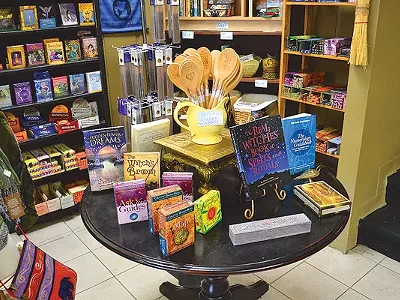In a way, it's a damn shame that our region has such a wealth of local festivals this week. While they offer something for everybody, there's so much happening that people have to make tough choices about what they'll see. That means that a lot of music fans will miss the chance to expose themselves to something new, especially jazz at the Detroit International Jazz Festival.
That said, attendance is never a problem at the jazz festival. It's the world's largest free jazz festival, causing downtown's streets to well up with people in a way they don't for other large events. But, this year, with plenty of new residents living downtown, perhaps some people new to the jazz scene might consider joining the fun and seeing what's on offer.
Seeing live jazz is different, watching the ebb and flow of improvisational solos.
It's also an opportunity to see cats who don't normally play together share a stage. Or so says Rodney Whitaker, who's headed up jazz studies for Michigan State University for 14 years, and has assembled the Mack Avenue Superband for Mack Avenue Records this for this year's festival. (The label's co-founder, Detroit businesswoman Gretchen Valade, also supports the festival through her Detroit International Jazz Festival Foundation, helping keep the event funded, robust, and free to the public, and the "superband" is another treat from this generous sponsor.)
Despite the label being local, like the festival, its artists come from all over. Whitaker says his bandmates come from "Memphis, Tennessee; New York City, Boston. ... It's a great experience, because I think they assembled a group of very forward-thinking people that are easy to work with. Musically, it's one of the best experiences I've ever had."
For Whitaker, that experience goes beyond playing and into his primary vocation: teaching.
"We're seeing mentorship here, because players in this group range from 25 years old all the way up to 60. So you've got quite a gamut in terms of generations. I mean, it's at least three or four generations of musicians playing together, and you see the older cats talking shop and music to the younger musicians, but also the younger musicians kind of turning us on to the new things"
That sort of intergenerational activity on the stage is something you'll likely find in the audience as well. And it's intentional. The festival's artistic director, Chris Collins, says, "The sophistication of our region's younger audiences is a guiding force when I program the Detroit Jazz Festival. So, in addition to programming original new artists like Pedrito Martinez, the Wonder Twins, Cyrille Aimee, Aruan Oritz, Esperanza Spaulding, and Tal Cohen — and high-energy artists like Mike Stern, Stanley Clarke, Bill Evans, and the Dirty Dozen Brass Band — I keep in mind that young audiences will also be inspired by the rare opportunity to hear the hippest-of-the-hip jazz legends like Ron Carter, Randy Weston, Dr. Lonnie Smith, and Pharoah Sanders."
And not only are the performers evolving throughout their careers, their music changes from night to night.
For instance, if you're curious about what tenor saxophonist Joshua Redman is going to play at the jazz fest, he says he's curious too. He laughs and says, "I know what the concerts are, but part of the joy of jazz is that you can always be curious about what's going to happen because you never know what's going to happen. It's primarily an improvised music. As much as I've played with a lot of these musicians before and as much as we've played some of this music together before, it's different every time, and especially at a festival like the Detroit jazz festival."
Redman, who played the fest for the first time last year, had heard a lot about it, but was "blown away" when he performed for Detroiters.
"There are a lot of 'jazz festivals' these days that are festivals by virtue of being a collection of concerts in a city over a period of time," he says. "And those are fantastic festivals too, but I think it's getting rarer and rarer to have the sort of festival where it really feels like the festival takes over a place, and people are pouring out into the streets. It gives it an openness, a joyousness, that's rare today. Audiences are very attentive and respectful, but very enthusiastic. It has a great spirit, a festive spirit."
Perhaps that gets lost in the shuffle sometimes, that jazz events are a celebration, an occasion to enjoy the pleasure of a form of music that's become synonymous with America.
"This music really changed the whole world," Whitaker reminds us. "I mean, you go to the end of the world and people know about the music festivals, jazz festivals, all over the world. People dig our music, and the idea that something comes from the African-American community that really changed the world without firing one shot — it's ours. It's our time to be something to the world, and we have a responsibility to music and our national identity to keep that story and that conversation going." — mt
The Detroit International Jazz Festival takes place Aug. 29-Sept. 1, in downtown Detroit. For more information, see detroitjazzfest.com.






